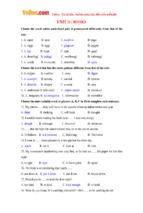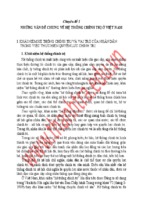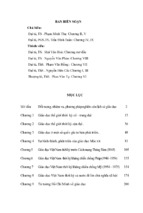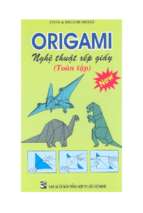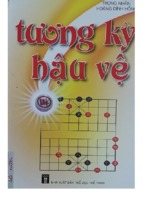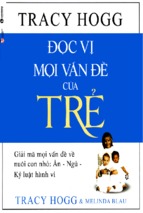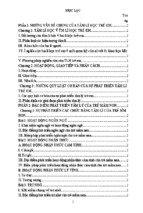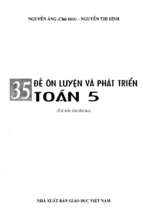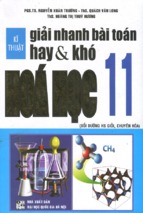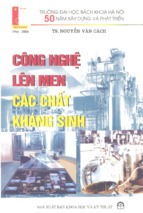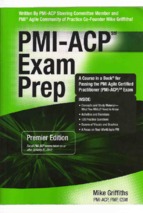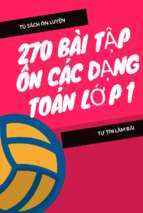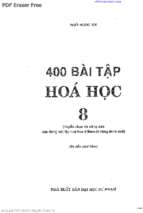TAI - PAN (ASIAN SAGA BOOK 2) - James Clavell
ABOUT THE E-BOOK
TITLE: Tai-Pan
AUTHOR: James Clavell
ABEB Version: 1.0
Wicman99Scan,NickL Proofread
No Tea
TAI-PAN
A NOVEL OF HONG KONG BY
James Clavell
FOR Tai-tai, for Holly, and for Michaela
BOOK I
Struan came up onto the quarterdeck of the flagship H.M.S. Vengeance, and strode for the
gangway. The 74-gun ship of the line was anchored half a mile off the island. Surrounding her
were the rest of the fleet’s warships, the troopships of the expeditionary force, and the
merchantmen and opium clippers of the China traders.
It was dawn—a drab, chill Tuesday—January 26th, 1841.
As Struan walked along the main deck, he glanced at the shore and excitement swarmed over
him. The war with China had gone as he had planned. Victory was as he had forecast. The prize
of victory—the island—was something he had coveted for twenty years. And now he was going
ashore to witness the formality of taking possession, to watch a Chinese island become a jewel in
the crown of Her Britannic Majesty, Queen Victoria.
The island was Hong Kong. Thirty square miles of mountainous stone on the north lip of the huge
Pearl River in South China. A thousand yards off the mainland. Inhospitable. Unfertile.
Uninhabited except for a tiny fishing village on the south side. Squarely in the path of the
monstrous storms that yearly exploded from the Pacific. Bordered on the east and on the west by
dangerous shoals and reefs. Useless to the mandarin—the name given to any official of the
Chinese Emperor—in whose province it lay.
But Hong Kong contained the greatest harbor on earth. And it was Struan’s stepping-stone into
China.
“Belay there!” the young officer of the watch called to the scarlet-coated marine. “Mr. Struan’s
longboat to the midships gangway!”
“Yes, sir!” The marine leaned over the side and echoed the order.
“Won’t be a moment, sir,” the officer said, trying to contain his awe of the merchant prince who
was a legend in the China seas.
“Nae hurry, lad.” Struan was a giant of a man, his face weathered by a thousand storms. His
blue frock coat was silver-buttoned and his tight white trousers were tucked carelessly into
seaboots. He was armed as usual—knife in the crease of his back and another in his right boot. He
was forty-three, redheaded, and his eyes were emerald green.
“It’s a bonny day,” he said.
“Yes, sir.”
Struan walked down the gangway, got into the prow of his longboat and smiled at his younger
half-brother, Robb, who sat amidships.
“We’re late,” Robb said with a grin.
“Aye. His Excellency and the admiral were longwinded.” Struan stared at the island for a
moment. Then he motioned at the bosun. “Cast off. Go ashore, Mr. McKay!”
“Aye, aye, sorr!”
“At long last, eh, Tai-Pan?” Robb said. “Tai-pan” was Chinese for “supreme leader.” In a
company or army or fleet or nation there is only one such man—he who wields the real power.
“Aye,” Struan said.
He was Tai-Pan of The Noble House.
CHAPTER ONE
“A pox on this stinking island,” Brock said, staring around the beach and up at the mountains. “The
whole of China at our feets and all we takes be this barren, sodding rock.”
He was standing on the foreshore with two of his fellow China traders. Scattered about them were other
clusters of traders, and officers from the expeditionary force. They were all waiting for the Royal Navy
officer to begin the ceremony. An honor guard of twenty marines was drawn up in two neat lines beside
the flagpole, the scarlet of their uniforms a sudden splash of color. Near them were the untidy knots of
sailors who had just fought the flagpole into the stony soil.
“Eight bells were time to raise the flag,” Brock said, his voice rasping with impatience. “It be an hour
past. Wot’s godrotting delay for?”
“It’s bad joss to curse on a Tuesday, Mr. Brock,” Jeff Cooper said. He was a lean, hook-nosed
American from Boston, his frock coat black and his felt top hat set at a jaunty angle. “Very bad!”
Cooper’s partner, Wilf Tillman, stiffened slightly, feeling the underlying edge to the younger man’s nasal
voice. He was thickset and ruddy, and came from Alabama.
“I’ll tell thee right smartly, this whole godrotting flyspeck be bad joss!” Brock said. “Joss” was a
Chinese word that meant Luck and Fate and God and the Devil combined. “Godrotting bad.”
“It better not be, sir,” Tillman said. “The future of the China trade’s here now—good joss or bad joss.”
Brock stared down at him. “Hong Kong’s got no future. It’s open ports on the China mainland we be
needing, and you knowed it, by God!”
“The harbor’s the best in these waters,” Cooper said. “Plenty of room to careen and refit all our ships.
Plenty of room to build our homes and warehouses. And no Chinese interference at long last.”
“A colony’s got to have arable land and peasants to work the land, Mr. Cooper. An’ revenue,” Brock
said impatiently. “I be walking all over and so have you. Not a crop’ll grow here. There be no fields or
streams, no grazing land. So no meat and no spuds. Everything we be needing’ll have to come by sea.
Think of the cost. Why, even the fishing be rotten. An’ who’s to pay upkeep of Hong Kong, eh? Us and
our trade, by God!”
“Oh, that’s the sort of colony you want, Mr. Brock?” Cooper said. “I thought the British Empire”—he
spat deftly to windward—“had enough of that sort of colony.”
Brock’s hand strayed near his knife. “Be you spitting to clear yor throat, or spitting on the Empire?”
Tyler Brock was nearing fifty, a big, one-eyed man as hard and as permanent as the iron he had been
forced to peddle in Liverpool as a youth, and as strong and as dangerous as the fighting merchant ships
he had escaped to and at length had come to rule as head of Brock and Sons. His clothes were rich and
the knife at his belt was jeweled. His beard was graying like his hair.
“It’s a cold day, Mr. Brock,” Tillman said quickly, inwardly angry at his young partner’s loose tongue.
Brock was no man to bait, and they could not afford open enmity with him yet. “Plenty of chill on the
wind, eh, Jeff?”
Cooper nodded briefly. But he did not take his eyes off Brock. He had no knife, but there was a
derringer in his pocket. He was of a height with Brock but slighter, and unafraid.
“I be givin’ thee piece of advice, Mr. Cooper,” Brock said. “Best not spit too often after saying ‘British
Empire.’ There be some wot baint be givin’ thee benefit of doubt.”
“Thank you, Mr. Brock, I’ll remember,” Cooper replied easily. “And I’ll give you some advice: It’s bad
joss to curse on a Tuesday.”
Brock suppressed his temper. Eventually he would crush Cooper and Tillman and their company, the
biggest of the American traders. But now he needed them as allies against Dirk and Robb Struan. Brock
cursed joss. Joss had made Struan and Company the greatest house in Asia, and so rich and powerful
that the other China traders had named it in awe and jealousy The Noble House—noble because it was
first in riches, first in largess, first in trade, first in clippers, but mostly because Dirk Struan was Tai-Pan,
the Tai-Pan among all the tai-pans of Asia. And joss had cost Brock an eye seventeen years ago, the
year that Struan had founded his empire.
It had happened off Chushan Island. Chushan was just south of the huge port of Shanghai, near the
mouth of the mighty Yangtse River. Brock had beaten up through the monsoon with a huge cargo of
opium—Dirk Struan a few days astern, also carrying opium. Brock had reached Chushan first, sold his
cargo and turned around, knowing happily that now Struan would have to go farther north and try a new
coast with fresh risks. Brock had sped south for home—Macao—his coffers filled with bullion, the full
wind astern. Then a great storm had suddenly swooped out of the China seas. The Chinese called these
storms tai-fung, the Supreme Winds. The traders called them typhoons. They were terror incarnate.
The typhoon had battered Brock’s ship mercilessly, and he had been pinned by the falling masts and
spars. A shorn halyard, caught by the winds, had flailed him as he lay helpless. His men had cut him loose
but not before the broken shackle-ended rope had gouged out his left eye. The ship had been on her
beam ends and he helped them cut the rigging and spars adrift, and by some miracle she had righted
herself. Then he had poured brandy into the bleeding socket; he could still remember the pain.
And he recalled how he had limped into port long after he had been given up for lost, his fine
three-masted clipper no more than a hulk, the seams sprung, masts and guns and rigging gone. And by
the time Brock had replaced spars and rigging and masts and cannon and powder and shot and men, and
bought another cargo of opium, all the profits of this voyage had vanished.
Struan had run into the same typhoon in a small lorcha—a boat with a Chinese hull, English-rigged and
used for coastal smuggling in fine weather. But Struan rode out the storm and, elegant and untouched as
usual, had been on the dock to greet Brock, his strange green eyes mocking him.
Dirk and his cursed joss, Brock thought. Joss be letting Dirk build that one stinking lorcha into a fleet of
clippers and hundreds of lorchas, into warehouses and bullion to spare. Into godrotting Noble House.
Joss pushed Brock and Sons into godrotting second place. Second. And, he thought, joss’s given him
ear of our godrotting weak-gutted plenipotentiary, the Honorable Godrotting Longstaff, all these years.
An’ now, together, they’ve sold us out. “A pox on Hong Kong and a pox on Struan!”
“If it weren’t for Struan’s plan, you’d never have won your war so easily,” Cooper said.
The war had begun at Canton two years before, when the Chinese emperor, determined to bring the
Europeans to heel, tried to eliminate the opium smuggling which was essential to British trade. Viceroy
Ling had surrounded the foreign settlement at Canton with troops, and demanded every case of opium in
Asia to ransom the lives of the defenseless English traders. At length, twenty thousand cases of opium
had been given over and destroyed, and the British were allowed to retreat to Macao. But the British
could not take lightly either interference with its trade or threats to its nationals. Six months ago the British
Expeditionary Force had arrived in the Orient and ostensibly had been placed under the jurisdiction of
Longstaff, the Captain Superintendent of Trade.
But it was Struan who conceived the inspired plan to bypass Canton, where all the trouble had started,
and instead send the expeditionary force north to Chushan. To take that island without loss would be
simple, Struan had theorized, for the Chinese were unprepared and helpless against any modern
European army or fleet. Leaving a small holding force at Chushan and a few ships to blockade the
Yangtse, the expeditionary force could sail north to the mouth of the Pei Ho River and threaten Peking,
the capital of China, which was only a hundred miles upstream. Struan knew that only so direct a threat
would make the emperor immediately sue for peace. A superb conception. And it had worked brilliantly.
The expeditionary force had arrived in the Orient last June. By July Chushan had been taken. By August
it was moored at the Pei Ho. In two weeks the emperor had sent an official to negotiate peace—the first
time in history that any Chinese emperor had officially acknowledged any European nation. And the war
had ended with almost no loss to either side.
“Longstaff was very wise to follow the plan,” Cooper said.
“Any China trader knowed how to bring the Chinee to their knees,” Brock said, his voice rough. He
pushed his top hat farther back on his forehead and eased his eye patch. “But why did Longstaff and
Struan agree to negotiate back at Canton, eh? Any fool knowed ‘negotiate’ to a Chinee means to play
for time. We should’ve stayed north at the Pei Ho till peace were signed. But no, we brung back the fleet
and for the last six month we be waiting and waiting for the buggers to set pen to paper.” Brock spat.
“Stupid, crazy stupid. An’ all that waste of time and money for this stinking rock. We should’ve kept
Chushan. Now, there be island worth having.” Chushan was twenty miles long and ten wide and its land
fertile and rich—a good port and a big city, Tinghai. “Space for a man to breathe in there, right enough.
Why, from there three or four frigates can blockade the Yangtse at the drop of a topper. An’ who
controls that river controls the heart of China. That’s where we should settle, by God.”
“You still have Chushan, Mr. Brock.”
“Yus. But it baint deeded in godrotting treaty, so it baint our’n.” He stamped his feet against the growing
chill wind.
“Perhaps you should mention it to Longstaff,” Cooper said. “He’s susceptible to advice.”
“Not to mine, he baint. As thee rightly knowed. But I’ll tell thee, when Parliament hear about the treaty,
there be hell to pay, I’ll be bound.”
Cooper lit a cheroot. “I’m inclined to agree. It is an astonishing piece of paper, Mr. Brock. For this day
and age. When every European power is land-grabbing and power-hungry.”
“And I suppose the United States baint?” Brock’s face tightened. “Wot about yor Indians? The
Louisiana Purchase? Spanish Florida? You be havin’ eyes on Mexico and Russian Alaska. The last mails
told you be even trying to steal Canada. Eh?”
“Canada’s American, not English. We’re not going to war over Canada—she’ll join us of her own free
will,” Cooper said, hiding his worry. He tugged at his muttonchop whiskers and pulled his frock coat
tighter around his shoulders against the sharpening wind. He knew that war with the British Empire would
be disastrous at this time, and would ruin Cooper-Tillman. God damn wars. Even so, he knew that the
States would have to go to war over Mexico and Canada unless there was a settlement. Just as Britain
had had to go to war with China.
“There won’t be a war,” Tillman said, trying to quiet Cooper diplomatically. He sighed and wished
himself back in Alabama. A man can be a gentleman there, he thought. There you don’t have to deal with
the damned British every day, or with blasphemous, foulmouthed scum like Brock, or a devil incarnate
like Struan—or even with an impetuous young man and senior partner like Jefferson Cooper, who thinks
Boston the center of the earth. “And this war’s over, for better or worse.”
“Mark my words, Mr. Tillman,” Brock said. “This godrotting treaty be no good for us’n and no good
for they. We’ve to keep Chushan and open ports on mainland China. We be at war again in a few
weeks. In June when the wind be ripe and the weather be ripe, the fleet’ll have to sail north to Pei Ho
again. An’ if we be at war again, how we going to get season’s teas and silks, eh? Last year almost no
trade because of war—the year before no trade at all an’ they stole all our opium to boot. Eight thousand
cases from me alone. Two million taels of silver that cost me. Cash.”
“That money’s not lost,” Tillman said. “Longstaff ordered us to give it up. To ransom our lives. He gave
us paper on the British Government. And there’s a settlement in the treaty. Six million taels of silver to
pay for it.”
Brock laughed harshly. “Thee think Parliament be honoring Longstaff’s paper? Why, any Government’d
be throwed out of office the moment they asked for the brass to pay for opium. An’ as to the six
million—that be paying for the cost of the war. I knowed Parliament better’n you. Kiss yor half million
taels goodbye be my advice to you both. So if we be at war again this year, there be no trade again. An’
if we baint trading this year, we be all bankrupt. You, me, every China trader. An’ even the godrotting
Noble House.” He jerked out his watch. The ceremony was to have started an hour ago. Time be
running out, he thought. Yus, but not on Brock and Sons, by God. Dirk’s had seventeen-year run of
good joss, and now be time for change.
Brock reveled in the thought of his second son, Morgan, who capably—and ruthlessly—controlled all
their interests in England. He wondered if Morgan had been successful in undermining Struan’s influence
in Parliament and in banking circles. We be going to wreck thee, Dirk, he thought, and Hong Kong along
with thee. “Wot the hell be the delay for?” he said, hastening toward the naval officer who was striding up
and down near the marines.
“What’s the matter with you, Jeff? You know he’s right about Hong Kong,” Tillman said. “You ought to
know better than to bait him.”
Cooper smiled his thin smile. “Brock’s so goddam sure of himself. I couldn’t help it.”
“If Brock’s right about the half million taels, we’re ruined.”
“Yes. But Struan will lose ten times that if there’s no payment. He’ll get paid, never fear. So we’ll get
ours.” Cooper looked after Brock. “Do you think he knows about our deal with Struan?”
Tillman shrugged. “I don’t know. But Brock’s right about the treaty. It’s stupid. It’ll cost us a pretty
penny.”
For the last three months Cooper-Tillman had been acting as secret agents for The Noble House. British
warships had been blockading Canton and the Pearl River, and British traders were forbidden to trade.
Longstaff—at Struan’s bidding—had put the embargo on as another measure to force the peace treaty,
knowing that the Canton warehouses were bulging with teas and silks. But since America had not
declared war on China, American ships could go through the blockade freely and thumb their noses at
the warships. So Cooper-Tillman had bought four million pounds of tea from Chen-tse Jin Arn—or
Jin-qua, as he was nicknamed—the richest of the Chinese merchants, and shipped it to Manila,
supposedly for Spanish merchants. The local Spanish official, for a considerable bribe, had issued the
necessary import and export licenses, and the tea was transferred—duty free—into Struan’s clippers and
rushed to England. Payment to Jin-qua was a shipload of opium delivered secretly by Struan somewhere
up the coast.
A perfect plan, Cooper thought. Everyone’s richer and gets the trade goods he wants. But we would
have made a fortune if our ships could have taken the teas direct to England. And he cursed the British
Navigation Acts that forbade any but British ships to bring goods into English ports. Goddam them, they
own the world.
“Jeff!”
Cooper followed his partner’s glance. For a moment he could not pick out what Tillman wanted him to
see in the crowded harbor. Then he saw the longboat pulling away from the flagship and in it the tall,
redheaded Scotsman who was so powerful that he could twist Parliament to his purposes and put the
greatest nation on earth to war.
“It would be too much to hope that Struan’d drown,” Tillman said.
Cooper laughed. “You’re wrong about him, Wilf. Anyway, the sea’d never dare.”
“Maybe it will, Jeff. It’s time enough. By all that’s holy.”
Dirk Struan stood in the prow of the longboat, riding the twist of the waves. And though he was already
late for the ceremony, he did not hurry his oarsmen. He knew that there would be no starting until he
arrived.
The longboat was three hundred yards offshore and the bosun’s “Steady as she goes” mixed nicely with
the crisp northeast monsoon. Far aloft, the wind gathered strength and scudded cumulus off the mainland
over the island and out to the ocean beyond.
The harbor was crowded with shipping, all British but for a few American and Portuguese vessels,
merchantmen of every size. Before the war the merchantmen would have been anchored at Macao, the
tiny Portuguese settlement on a tip of the mainland, forty miles southwest across the huge mouth of the
Pearl River. Or off the island of Whampoa, thirteen miles south of Canton. This was the nearest that any
European ship was allowed, by Chinese law, to approach Canton. By imperial decree all European trade
was restricted to this city. Legend said that over a million Chinese lived within its walls. But no European
knew for certain, for none had ever walked its streets.
Since antiquity the Chinese had had rigid laws excluding Europeans from their country. The inflexibility of
these laws, the lack of freedom for Europeans to go where they pleased and trade as they pleased, had
caused the war.
As the longboat passed near a merchantman, some children waved at Struan and he waved back. It’ll
be good for the bairns to have their own homes at long last, on their own soil, he thought. When the war
had begun, all British citizens had been evacuated onto the ships for safety. There were approximately a
hundred and fifty men, sixty wives, eighty children. A few of the families had been aboard one ship or
another for almost a year.
Surrounding the merchantmen were the warships of the British Expeditionary Force: ships of the line,
74-guns, 44’s, 22’s, brigs, frigates, a small part of the mightiest navy the world had ever known. And
dozens of troopships with four thousand British and Indian soldiers aboard, part of the strongest army on
earth.
And among these ships were the beautiful rake-masted opium clippers, the fleetest ships ever built.
Struan felt a glow of excitement as he studied the island with its dominating mountain that soared
eighteen hundred feet almost sheer from the sea.
He had never set foot on the island even though he knew more about it than any man. He had sworn not
to go ashore until it was British-owned. It pleased him to be so imperious. But this had not prevented him
from sending his captains and his younger brother Robb ashore to survey the island. He knew the reefs
and the rocks and the glens and hills, and he knew where he was going to build his warehouses and the
Great House, and where the road would be.
He turned to look at his clipper, China Cloud, 22 guns. All of Struan and Company’s clippers were
surnamed “Cloud” to honor his mother, a McCloud, who had died years ago. Seamen were painting and
cleaning an already sparkling vessel. Guns were being examined and rigging tested. The Union Jack
fluttered proudly aft and the company flag atop the mizzen.
The flag of The Noble House was the royal red lion of Scotland entwined with the imperial green dragon
of China. It flew on twenty armed clippers scattered over the oceans of the world, on a hundred
swift-sailing armed lorchas that smuggled opium up the coast. It flew on three huge opium supply depot
ships—converted hulks of merchantmen which were presently anchored in Hong Kong harbor. And it
flew over Resting Cloud, his vast semi-stationary headquarters vessel that contained bullion strong
rooms, offices, luxurious suites and dining rooms.
You’re a bonny flag, Struan thought proudly.
The first ship that had flown the flag had been an opium-laden pirate lorcha that he had taken by force.
Pirates and corsairs infested the coasts, and the Chinese and Portugese authorities offered a silver bounty
for pirates. When the winds had forbidden opium smuggling or when he had no opium to sell, he had
scoured the China seas. The bullion he gained from the pirates he invested in opium.
Godrot opium, he thought. But he knew that his life was inexorably tied to opium—and that without it
neither The Noble House nor the British Empire could exist.
The reason could be traced back to 1699, when the first British ship traded peacefully with China and
brought back silks and, for the first time, the peerless herb called tea—which China alone on earth
produced cheaply and in abundance. In exchange, the emperor would take only silver bullion. And this
policy had persisted ever since.
Within fifty-odd years tea became the most popular drink of the Western world—particularly of Britain,
the major trading nation on earth. In seventy years tea was the single major source of internal tax revenue
for the British Government. Within a century the outpouring of wealth to China had critically depleted the
British treasury and the unbalanced tea-bullion trade was a national catastrophe.
Over the century, the British East India Company—the gigantic semiprivate, semipublic firm which
possessed, by Act of Parliament, a total monopoly on Indian and Asian trade—had offered everything
and anything with growing desperation—cotton goods, looms, even guns and ships—in place of bullion.
But the emperors imperiously refused. They considered China self-sufficient, were contemptuous of
“barbarians,” as they called all non-Chinese, and regarded all the nations of the earth as no better than
vassal states of China.
And then, thirty years ago, a British merchantman, the Vagrant Star, had sailed up the Pearl River and
anchored off Whampoa Island. Its secret cargo was opium, which British Bengal produced cheaply and
in abundance. Although opium had been used in China for centuries—but only by the very rich and by
those in Yunnan Province where the poppy also flourished—it was contraband. The East India Company
had clandestinely licensed the captain of Vagrant Star to offer the opium. But only for bullion. The
Chinese Guild of Merchants, which by imperial decree monopolized all Western Trade, bought the cargo
and sold it secretly at a great profit. The captain of the Vagrant Star privately turned over the bullion to
the Company’s officers in Canton and took his profit in bank paper on London and rushed back to
Calcutta for more opium.
Struan remembered the Vagrant Star well. He had been a cabin boy aboard her. It was in this vessel
that he had become a man—and had seen Asia. And had sworn to destroy Tyler Brock, who at the time
was the Vagrant Star’s third mate. Struan was twelve, Brock eighteen and very strong. Brock had
hated him on sight and delighted in finding fault, cutting his food ration, ordering him extra watches,
sending him aloft in foul weather, baiting him, goading him. The slightest mistake and he had Struan tied to
the rigging and lashed with the cat-o’-nine-tails.
Struan had stayed with the Vagrant Star for two years. Then one night she struck a reef in the Malacca
Strait and went down. Struan had swum ashore and made his way to Singapore. Later he learned that
Brock had survived too and this made him very happy. He wanted revenge, in his own way, in his own
time.
Struan had joined another ship. By now the East India Company was secretly licensing many carefully
selected independent captain-traders, and continuing to sell them exclusively Bengal opium at
advantageous prices. The Company began to make huge profits and acquire vast quantities of silver
bullion. The Chinese Guild of Merchants and the mandarins turned blind eyes to the illicit trade, for they
too made huge profits. And these profits, being secret, were not subject to imperial squeeze.
Opium became the inbound staple of trade. The Company quickly monopolized the world supply of
opium outside Yunnan Province and the Ottoman Empire. Within twenty years the bullion traded for
smuggled opium equaled the bullion that was owed for teas and silks.
At last trade balanced. Then overbalanced, for there were twenty times more Chinese customers than
Western customers, and there began a staggering outpouring of bullion that even China could not afford.
The Company offered other trade goods to stem the tide. But the emperor remained adamant: bullion for
tea.
By the time Struan was twenty he was captain-owner of his own ship on the opium run. Brock was his
chief rival. They competed ruthlessly with each other. Within six years Struan and Brock dominated the
trade.
The opium smugglers became known as China traders. They were an intrepid, tough, vital group of
individualistic owner-captains—English, Scots, and some Americans—who casually drove their tiny ships
into unknown waters and unknown dangers as a way of life. They went to sea to trade peacefully: to
make a profit, not to conquer. But if they met with a hostile sea or a hostile act, their ships became
fighting ships. And if they did not fight well, their ships vanished and were soon forgotten.
The China traders soon realized that while they were taking all the risks, the Company was taking most
of the profit. And, too, they were totally excluded from the legitimate—and hugely profitable—tea and
silk trade. So although they continued to compete fiercely, at Struan’s persuasion they began to agitate
collectively against the Company to break its monopoly. Without the monopoly the traders could convert
opium into bullion, bullion into tea, then ship the tea home and sell it directly to the markets of the world.
The China traders would themselves control the world tea trade and their profits would become gigantic.
Parliament became their forum for agitation. Parliament had given the Company its exclusive monopoly
two centuries ago, and only Parliament could take it away. So the China traders gambled heavily, buying
votes, supporting members of Parliament who believed in free competition and free trade, writing to
newspapers and to members of the Government. They were determined, and as their wealth increased so
did their power. They were patient and tenacious and indomitable—as only men trained by the sea can
be.
The Company was furious at the insurgents and reluctant to lose its monopoly. But it desperately needed
the China traders to supply the bullion to pay for the teas, and by now it depended heavily on the huge
revenue from the sale of Bengal opium. So it fought back carefully in Parliament. Parliament was equally
trapped. It decried the sale of opium but needed the revenue from the teas and the Indian Empire.
Parliament tried to listen to the China traders and to the Company, and satisfied neither.
Then the Company decided to make an example of Struan and Brock, its chief antagonists. It withdrew
their opium licenses and broke them.
Brock was left with his ship, Struan with nothing. Brock went into secret partnership with another China
trader and continued to agitate. Struan and his crew fell on a pirate haven south of Macao, laid it waste,
and took the fastest lorcha. Then he became a clandestine opium runner for other traders and relentlessly
took more pirate ships, and made more and more money. In consort with the other China traders, he
gambled ever more heavily, buying ever more votes and continuing to harass and exhort until Parliament
was howling for the total destruction of the Company. Seven years earlier Parliament had passed the Act
that eliminated the Company’s monopoly on Asia and opened it to free trade. But it allowed the
Company to retain the exclusive right to trade with British India—and the world monopoly of opium.
Parliament deplored the sale of opium. The Company did not wish to trade with opium. The China
traders themselves would have preferred another—though equally profitable—staple. But they all knew
that without the tea-bullion-opium balance the Empire would be wrecked. It was a fact of life of world
trade.
With freedom to trade, Struan and Brock became merchant princes. Their armed fleets expanded. And
rivalry honed their enmity even keener.
To replace the political vacuum left in Asia when the Company’s control was nullified and trade freed,
the British Government had appointed a diplomat, the Honorable William Longstaff, as Captain
Superintendent of Trade to protect its interests. The interests of the Crown were an ever-expanding
volume of trade—to gain more tax revenue—and the continued exclusion of all other European powers.
Longstaff was responsible for the safety of trade and of British nationals, but his mandate was vague and
he was given no real power to enforce a policy.
Poor little Willie, Struan thought without malice. Even with all my patient explanations over the last eight
years, our “exalted” Excellency, the Captain Superintendent of Trade, still canna see his hand afore his
face.
Struan looked at the shore as the sun crested the mountains and bathed the men gathered there with
sudden light: friends and enemies, all rivals. He turned to Robb. “Would you na say they’re a welcoming
committee?” All his years away from Scotland had not completely erased his Scots brogue.
Robb Struan chuckled and set his felt hat at a crisper angle. “I’d say they all hope we’ll drown, Dirk.”
He was thirty-three, dark-haired, clean-shaven, with deep-set eyes, thin nose, and heavy muttonchop
whiskers. His clothes were black except for a green velvet cloak and white ruffled shirt and white cravat.
His shirt and cuff buttons were rubies. “Good God, is that Captain Glessing?” he asked, peering at the
shore.
“Aye,” Struan said. “I thought it apt that he should be the one to read the proclamation.”
“What did Longstaff say when you suggested it?”
“ ’Pon me word, Dirk, all right, if you think it wise.’ ” He grinned. “We’ve come a long way since we
started, by God!”
“You have, Dirk. It was all done when I came out here.”
“You’re the brains, Robb. I’m just the muscle.”
“Yes, Tai-Pan. Just the muscle.” Robb knew well that his stepbrother was Tai-Pan of Struan and
Company, and that in Asia Dirk Struan was the Tai-Pan. “A beautiful day for the flag raising, isn’t it?”
“Aye.”
Robb watched him as he turned back to the shore. He looked so huge, standing there in the prow,
bigger than the mountains and just as hard. I wish I were like him, Robb thought.
Robb had gone opium smuggling only once, shortly after he arrived in the Orient. Their ship had been
attacked by Chinese pirates and Robb had been terrified. He was still ashamed, even though Struan had
said, “Nae harm in that, laddie. The first time in battle is always bad.” But Robb knew that he was not a
fighter, not brave. He served his half brother in other ways. Buying teas and silks and opium. Arranging
loans and watching the bullion. Understanding the ever more complicated modern procedures of
international trading and financing. Guarding his brother and the Company and their fleet and making
them safe. Selling teas in England. Keeping the books and doing all the things that made a modern
company function. Yes, Robb told himself, but without Dirk you’re nothing.
Struan was studying the men on the beach. The longboat was still two hundred yards offshore. But he
could see the faces clearly. Most of them were looking at the longboat. Struan smiled to himself.
Aye, he thought. We’re all here on this day of destiny.
The naval officer, Captain Glessing, was waiting patiently to begin the flag-raising ceremony. He was
twenty-six, a captain of a ship of the line, the son of a vice-admiral, and the Royal Navy was part of his
bloodstream. It was getting lighter rapidly on the beach, and far to the east on the horizon the sky was
threaded with clouds.
There’ll be a storm in a few days, Glessing thought, tasting the wind. He took his eyes off Struan and
automatically checked the lie of his ship, a 22-gun frigate. This was a monumental day in his life. It was
not often that new lands were taken in the name of the queen, and for him to have the privilege of reading
the proclamation was fortunate for his career. There were many captains in the fleet senior to him. But he
knew that he had been chosen because he had been in these waters the longest, and his ship, H.M.S.
Mermaid, had been heavily involved in the whole campaign. Not a campaign at all, he thought with
contempt. More of an incident. It could have been settled two years ago if that fool Longstaff had had
any guts. Certainly, if I’d been allowed to take my frigate up to the gates of Canton. Dammit, I sank a
whole bloody fleet of war junks, and the way was clear. I could have bombarded Canton and taken that
heathen devil Viceroy Ling and hung him at the yardarm.
Glessing kicked the beach irritably. It’s not that I mind the heathen stealing the damned opium. Quite
right to want to stop smuggling. It’s the insult to the flag. English lives ransomed by heathen devils!
Longstaff should have allowed me to proceed forthwith. But no. He meekly retreated and evacuated
everyone onto the merchant fleet and then hamstrung me. Me, by God, who had to protect the whole
merchant fleet. Damn his eyes! And damn Struan, who leads him by the nose.
Well, he added to himself, even so you’re lucky to be here. This is the only war we’ve got at the
moment. At least, the only seaborne war. The others are mere incidents: the simple taking over of the
heathen Indian states—by gad, they worship cows and burn widows and bow down before idols—and
the Afghan wars. And he felt a surge of pride that he was part of the greatest fleet on earth. Thank God
he had been born English!
Abruptly he noticed Brock approaching and was relieved to see him intercepted by a short, fat, neckless
man in his thirties, with a huge belly that overflowed his trousers. This was Morley Skinner, proprietor of
the Oriental Times, the most important of the English papers in the Orient. Glessing read every edition. It
was well written. Important to have a good newspaper, he thought. Important to have campaigns well
recorded to the glory of England. But Skinner’s a revolting man. And all the rest of them. Well, not all of
them. Not old Aristotle Quance.
He glanced at the ugly little man sitting alone on a bank overlooking the beach, on a stool in front of an
easel, obviously painting away. Glessing chuckled to himself, remembering the good times he had had in
Macao with the painter.
Apart from Quance, Glessing liked no one on the beach except Horatio Sinclair. Horatio was the same
age as he, and Glessing had come to know him quite well in the two years he had been in the Orient.
Horatio was also an aide to Longstaff, his interpreter and secretary—the only Englishman in the Orient
who could speak and write fluent Chinese—and they had had to work together.
Glessing scanned the beach and saw, distastefully, that Horatio was down by the surf chatting with an
Austrian, Wolfgang Mauss, a man whom he despised. The Reverend Mauss was the only other
European in the Orient who could write and speak Chinese. He was a huge, black-bearded man—a
renegade priest, Struan’s interpreter and opium runner. There were pistols in his belt, and the tails of his
frock coat were mildewed. His nose was red and bulbous and his long, black-gray hair matted and wild
like his beard. His few remaining teeth were broken and brown, and his eyes dominated the grossness of
his face.
Such a contrast to Horatio, Glessing thought. Horatio was fair and frail and clean as Nelson, for whom
he had been named—because of Trafalgar and because of the uncle he had lost there.
Included in their conversation was a tall, lithe Eurasian, a young man that Glessing knew only by sight:
Gordon Chen, Struan’s bastard.
By gad, Glessing thought, how can Englishmen flaunt half-caste bastards so openly? And this one
dressed like all the bloody heathens in a long robe with a damned queue hanging down his back. By gad!
If it weren’t for his blue eyes and his fair skin, you couldn’t tell he had any English blood in him at all.
Why the devil doesn’t he cut his hair like a man? Disgusting!
Glessing turned away from them. I suppose the half-caste’s all right, not his fault. But that damned
Mauss is bad company. Bad for Horatio and bad for his sister, dear Mary. Now, there’s a young lady
worth knowing! She’d make a good wife, by gad.
He hesitated in his walk. This was the first time that he had actually considered Mary as a possible mate.
Why not? he asked himself. You’ve known her for two years. She’s the toast of Macao. She runs the
Sinclair house impeccably and treats Horatio as a prince. The food’s the best in town and she rules the
servants beautifully. Plays the harpsichord like a dream and sings like an angel, by jove. She obviously
likes you—why else would you have an open invitation to dine whenever you and Horatio are in Macao?
So why not as wife, eh? But she’s never been home. She’s spent all her life among heathens. She has no
income. Parents are dead. But what does that matter, eh? The Reverend Sinclair was respected
throughout Asia when he was alive, and Mary’s beautiful and just twenty. My prospects are excellent.
I’ve five hundred a year and I’ll inherit the manor house and the lands eventually. By gad, she could be
the one for me. We could get married in Macao at the English church and rent a house until this
commission’s up and then we’ll go home. When the time’s ripe I’ll say to Horatio, “Horatio, old boy,
there’s something I want to talk to . . .”
“Wot be all the delay, Cap’n Glessing?” Brock’s rough voice shattered his reverie. “Eight bells were
time to raise the flag and it be an hour past.”
Glessing whirled around. He was not used to a belligerent tone of voice from anyone less than a
vice-admiral. “The flag gets raised, Mr. Brock, when one of two things happen. Either when His
Excellency comes ashore or when there’s a signal cannon from the flagship.”
“An’ when be that?”
“I notice that you’re not fully represented yet.”
“You mean Struan?”
“Of course. Isn’t he Tai-Pan of The Noble House?” Glessing said it deliberately, knowing it would
irritate Brock. Then he added, “I suggest you possess yourself with patience. No one ordered any of you
tradesmen ashore.”
Brock reddened. “You’d better be learning difference twixt merchants an’ tradesmen.” He moved his
tobacco quid in his cheek and spat on the stones beside Glessing’s feet. A few flecks of spittle marred
the polish of the silver-buckled shoes. “Beg pardon,” Brock said with mock humility and strode away.
Glessing’s face froze. But for the “Beg pardon” he would have challenged him to a duel. Rotten
low-class sod, he thought, filled with contempt.
“Beggin’ yor pardon, sorr,” the master-at-arms said, saluting, “signal from the flagship.”
Glessing squinted his eyes against the sharpening wind. The signal flags read: “All captains to report
aboard at four bells.” Glessing had been present last night at a private meeting of the admiral and
Longstaff. The admiral had said that opium smuggling was the cause of all the trouble in Asia.
“Goddamme, sir, they’ve no sense of decency,” he had exploded. “All they think of is money. Abolish
opium and we’ll have no more damned trouble with the damned heathen or with the damned tradesmen.
The Royal Navy will enforce your order, by God!” And Longstaff had agreed, rightly. I suppose the
order will be announced today, Glessing thought, hard put to contain his delight. Good. And about time. I
wonder if Longstaff has just told Struan that he’s issuing the order.
He glanced back at the longboat which was approaching leisurely. Struan fascinated him. He admired
him and loathed him—the master mariner who had conned ships on every ocean in the world, who
wrecked men and companies and ships to the glory of The Noble House. So different from Robb,
Glessing thought; I like Robb.
He shuddered in spite of himself. Perhaps there was truth in the tales whispered by sailormen the China
seas over, tales that Struan worshiped the Devil in secret, and that in return the Devil had given him
power on earth. How else could a man of his age look so young and be so strong, with white teeth and
all his hair and the reflexes of a youth, when most men would be infirm and used up and near death?
Certainly the Chinese were terrified of Struan. “Old Green-eyed Rat Devil” they had nicknamed him, and
had put a reward on his head. All Europeans had rewards on their heads. But the Tai-Pan’s was a
hundred thousand taels of silver. Dead. For no one would catch him alive.
Glessing irritably tried to ease his toes in his buckled shoes. His feet hurt and he was uncomfortable in his
gold-braided uniform. Damn the delay! Damn the island and the harbor and the waste of good ships and
good men. He remembered his father’s saying, “Blasted civilians. All they think of is money or power.
They’ve no sense of honor, none. Watch your backside, son, when there’s a civilian in command. And
don’t forget that even Nelson had to put his telescope to his blind eye when there was an idiot in
command.” How can a man like Longstaff be so stupid? The man’s from a good family, well-bred—his
father was a diplomat at the court of Spain. Or was it Portugal?
And why did Struan push Longstaff into stopping the war? Certainly we get a harbor that can anchor the
fleets of the world. But what else?
Glessing studied the ships in the harbor. Struan’s 22-gun ship, China Cloud. The White Witch,
22-guns, pride of Brock’s fleet. And the American Cooper-Tillman 20-gun brig, Princess of Alabama.
Beauties, all of them. Now, they’d be worth fighting, he thought. I know I could sink the American.
Brock? Hard, but I’m better than Brock. Struan?
Glessing pondered about a sea battle with Struan. Then he knew that he was afraid of Struan. And
because of his fear he was filled with anger and sick of the pretense that Struan and Brock and Cooper
and all the China traders were not pirates.
By God, he swore to himself, as soon as the order’s official, I’ll lead a flotilla that’ll blast them all out of
the water.
Aristotle Quance sat moodily in front of the half-finished painting on his easel. He was a tiny man with
gray-black hair. His clothes, about which he was incredibly fastidious, were in the latest fashion: tight gray
trousers and white silk socks and black bow-tied shoes. Pearl satin waistcoat and black wool frock coat.
High collar and cravat and pearl pin. Half English and half Irish, he was, at fifty-eight, the oldest European
in the Orient.
He took off his gold spectacles and began to clean them with an immaculate French lace kerchief. I’m
sorry to see this day, he thought. Damn Dirk Struan. If it weren’t for him there’d be no damned Hong
Kong.
He knew that he was witness to the end of an era. Hong Kong will destroy Macao, he thought. It will
steal away all the trade. All the English and American tai-pans will move their headquarters here. They
will live here and build here. Then all the Portuguese clerks will come. And all the Chinese who live off
Westerners and Western trade. Well, I’m never going to live here, he swore. I’ll have to come here to
work from time to time to earn money, but Macao will always be my home.
Macao had been his home for more than thirty years. He alone, of all the Europeans, thought of the
Orient as home. All the others came for a few years and then left. Only those who died stayed. Even
then, if they could afford it, they would provide in their wills for their bodies to be shipped back “home.”
I’ll be buried in Macao, thank God, he told himself. Such good times I’ve had there, we all have. But
that’s finished. God damn the Emperor of China! Fool to wreck a structure so cleverly constructed a
century ago.
Everything was working so well, Quance thought bitterly, but now it’s over. Now we’ve taken Hong
Kong. And now that the might of England is committed in the East and the traders have had a taste of
power, they won’t be content with just Hong Kong. “Well,” he said involuntarily aloud, “the emperor will
reap what he has sown.”
“Why so glum, Mr. Quance?”
Quance put on his spectacles. Morley Skinner was standing at the foot of the bank.
“Not glum, young man. Sad. Artists have a right—yes, an obligation—to be sad.” He put the unfinished
painting aside and set a clean piece of paper on his easel.
“Quite agree, quite agree.” Skinner lumbered up the bank, his pale brown eyes looking like the dregs of
ancient beer. “Just wanted to ask you your opinion of this momentous day. Going to put out a special
edition. Without a few words from our senior citizen the edition wouldn’t be complete.”
“Quite correct, Mr. Skinner. You may say, ‘Mr. Aristotle Quance, our leading artist, bon vivant and
beloved friend, declined to make a statement as he was in the process of creating another masterpiece.’ ”
He took a pinch of snuff and sneezed hugely. Then with his kerchief he dusted the excess snuff off his
frock coat and the flecks of sneeze off the paper. “Good day to you sir.” Once more he concentrated on
the paper. “You are disturbing immortality.”
“Know exactly how you feel,” Skinner said with a pleasant nod. “Exactly how you feel. Feel the same
when I’ve something important to write.” He plodded away.
Quance did not trust Skinner. No one did. At least no one with a skeleton in his past, and everyone here
had something he wanted to hide. Skinner enjoyed resurrecting the past.
The past. Quance thought about his wife and shivered. Great thunderballs of death! How could I have
been so stupid to think that Irish monster could make a worthy mate? Thank God she’s back in the
loathsome Irish bog, never to darken my firmament again. Women are the cause of all man’s tribulations.
Well, he added cautiously, not all women. Not dear little Maria Tang. Ah, now, there’s a luscious coleen
if ever I saw one. And if anyone knows an impeccable cross of Portuguese and Chinese, you do, dear
clever Quance. Damn, I’ve had a wonderful life.
And he realized that though he was witnessing the end of an era, he was also part of a new one. Now he
had new history to eyewitness and record. New faces to draw. New ships to paint. A new city to
perpetuate. And new girls to flirt with and new bottoms to pinch.
“Sad? Never!” he roared. “Get to work, Aristotle, you old fart!”
Those on the beach who heard Quance chuckled one to another. He was hugely popular and his
company sought after. And he was given to talking to himself.
“The day wouldn’t be complete without dear old Aristotle,” Horatio Sinclair said with a smile.
“Yes.” Wolfgang Mauss scratched the lice in his beard. “He’s so ugly he’s almost sweet-faced.”
“Mr. Quance is a great artist,” Gordon Chen said. “Therefore he is beautiful.”
Mauss shifted his bulk and stared at the Eurasian. “The word is ‘handsome,’ boy. Did I teach you for
years so that you still don’t know the difference between ‘handsome’ and ‘beautiful,’ hein? And he’s not
a great artist. His style is excellent and he is my friend, but he has not the magic of a great master.”
“I meant ‘beautiful’ in an artistic sense, sir.”
Horatio had seen the momentary flash of irritation pass through Gordon Chen. Poor Gordon, he thought,
pitying him. Of neither one world nor the other. Desperately trying to be English yet wearing Chinese
robes and a queue. Though everyone knew he was the Tai-Pan’s bastard by a Chinese whore, no one
acknowledged him openly—not even his father. “I think his painting wonderful,” Horatio said, his voice
gentle. “And him. Strange how everyone adores him, yet my father despised him.”
“Ah, your father,” Mauss said. “He was a saint among men. He had high Christian principles, not like us
poor sinners. May his soul rest in peace.”
No, Horatio thought. May his soul burn in hellflre forever.
The Reverend Sinclair had been one of the first group of English missionaries to settle in Macao
thirty-odd years ago. He had helped in the translating of the Bible into Chinese, and had been one of the
teachers in the English school that the mission had founded. He had been honored as an upstanding
citizen all his life—except by the Tai-Pan—and when he had died seven years ago, he had been buried
as a saintly man.
Horatio was able to forgive his father for driving his mother into an early grave, for the high principles
that had given him a narrow, tyrannical approach to life, for the fanaticism of his worship of a terrifying
God, for the obsessive single-mindedness of his missionary zeal, and for all the beatings he had inflicted
on his son. But even after all this time he could never forgive him the beatings he had given Mary or the
curses he had heaped on the Tai-Pan’s head.
The Tai-Pan had been the one who had found little Mary when at the age of six she had run away in
terror. He had soothed her and then taken her home to her father, warning him that if he ever laid a finger
on her again he would tear him out of his pulpit and horsewhip him through the streets of Macao. Horatio
had worshiped the Tai-Pan ever since. The beatings had stopped, but there had been other punishments.
Poor Mary.
As he thought of Mary, his heart quickened and he looked out at the flagship where they had their
temporary home. He knew that she would be watching the shore and that, like him, she would be
counting the days until they were back safe in Macao. Only forty miles away, south, but so far. He had
lived all his twenty-six years in Macao except for some schooling at home in England. He had hated
school, both at home and in Macao. He had hated being taught by his father; he had tried desperately to
satisfy him but never had been able to. Not like Gordon Chen, who had been the first Eurasian boy
accepted in the Macao school. Gordon Chen was a brilliant scholar and had always been able to satisfy
the Reverend Sinclair. But Horatio did not envy him: Mauss had been Gordon Chen’s torturer. For every
beating his father had given him, Mauss gave Gordon Chen three. Mauss was also a missionary; he had
taught English, Latin and history.
Horatio eased the knot in his shoulders. He saw that Mauss and Gordon Chen were again staring fixedly
at the longboat, and he wondered why Mauss had been so harsh with the young man at school—why he
had demanded so much of him. He supposed it was because Wolfgang hated the Tai-Pan. Because the
Tai-Pan saw through him and offered him money and the post of interpreter on opium-smuggling voyages
up the coast. In return for allowing Wolfgang to distribute Chinese Bibles and tracts and to preach to the
heathen wherever the ship stopped—but only after the opium trading was completed. He supposed
Wolfgang despised himself for being a hypocrite and a party to such an evil. Because he was forced to
pretend that the end justified the means when he knew it did not.
You’re a weird man, Wolfgang, he thought. He remembered going to Chushan Island last year when it
had been occupied. With the Tai-Pan’s approval, Longstaff had appointed Mauss temporary magistrate
to enforce martial law and British justice.
Against custom, strict orders had been issued on Chushan forbidding sacking and looting. Mauss had
given every looter—Chinese, Indian, English—a fair, open trial and then he had sentenced each of them
to be hanged, using the same words: “Gott im Himmel, forgive this poor sinner. Hang him.” Soon the
looting ceased.
Because Mauss was given to reminiscing freely in court between hangings, Horatio had discovered that
he had been married three times, each time to an English girl; that the first two had died of the flux and his
present one was poorly. That while Mauss was a devoted husband, the Devil still tempted him
successfully with the whorehouse and gin cellars of Macao. That Mauss had learned Chinese from the
heathen in Singapore where he had been sent as a young missionary. That he had lived twenty of his forty
years in Asia and had never been home in all that time. That he carried pistols now because “You can
never tell, Horatio, when one of the heathen devils will want to kill you or heathen pirates will try to rob
you.” That he considered all men sinners—himself above all. And that his one aim in life was to convert
the heathen and make China a Christian nation.
“What’s in your mind?” broke into Horatio’s thoughts.
He saw Mauss studying him. “Oh, nothing,” he said quickly. “I was just . . . just thinking.”
Mauss scratched his beard thoughtfully. “I also. This is a day to think, hein? Nothing in Asia will ever be
the same again.”
“No. I suppose not. Will you move from Macao? Build here?”
“Yes. It will be good to own land, have our own soil away from that papist cesspool. My wife will like
that. But me? Me, I do not know. I belong there,” Mauss added, filled with longing, and he waved a
huge fist at the mainland.
Horatio saw the eyes of Mauss deepen as he looked into the distance. Why is China so fascinating? he
asked himself.
He scanned the beach wearily, knowing that there was no answer. I wish I were rich. Not as rich as the
Tai-Pan or Brock. But rich enough to build a fine house and entertain all the traders and take Mary on a
luxurious trip home through Europe.
He enjoyed being interpreter to His Excellency, and his private secretary, but he needed more money.
One had to have money in this world. Mary should have ball gowns and diamonds. Yes. But even so, he
was glad he didn’t have to earn their daily bread like the traders. The traders had to be ruthless, too
ruthless, and the living was too precarious. Many who thought they were wealthy today would be broken
in a month. A ship lost and you could be wiped out. Even The Noble House was hurt occasionally. Their
ship Scarlet Cloud was already a month overdue, perhaps a battered hulk careening and refitting on
some uncharted island between here and Van Diemen’s Land two thousand miles off course. More likely
at the bottom of the sea with half a million guineas’ worth of opium in her gut.
And the things you had to do as a trader, to men and to friends, in order to survive, let alone prosper.
Dreadful.
He saw Gordon Chen’s fixed stare on the longboat and wondered what he was thinking. It must be
terrible to be a half-caste, he thought. I suppose, if the truth were known, he hates the Tai-Pan too, even
though he pretends otherwise. I would . . .
Gordon Chen’s mind was on opium and he was blessing it. Without opium there would be no Hong
Kong—and Hong Kong, he thought exultantly, is the most fantastic opportunity for making money I
could ever have and the most unbelievable stroke of joss for China.
If there had been no opium, he told himself, there would be no China trade. If there had been no China
trade, then the Tai-Pan would never have had money to buy my mother from the brothel and I would
never have been born. Opium paid for the house Father gave Mother years ago in Macao. Opium paid
for our food and clothes. Opium paid for my schooling and English-speaking tutors and
Chinese-speaking tutors, so that now, today, I am the best-educated youth in the Orient.
He glanced across at Horatio Sinclair, who was looking around the beach with a frown. He felt a shaft
of envy that Horatio had been sent home to school. He had never been home.
But he pushed away his envy. Home will come later, he promised himself happily. In a few years.
He turned to watch the longboat again. He adored the Tai-Pan. He had never called Struan “Father”
and had never been called “my son” by him. In fact, he had spoken to him only twenty or thirty times in
his life. But he tried to make his father very proud of him and he always thought of him secretly as
“Father.” He blessed him again for selling his mother to Chen Sheng as third wife. My joss has been
huge, he thought.
Chen Sheng was compradore of The Noble House, and was almost a father to Gordon Chen. A
compradore was the Chinese agent who bought and sold on behalf of a foreign establishment. Every
item, large or small, would pass through the compradore’s hands. By custom, on every item he would
add a percentage. This became his personal profit. But his earnings depended on the success of his
house, and he had to cover bad debts. So he had to be very cautious and clever to become rich.
Ah, Gordon Chen thought, to be as rich as Chen Sheng! Or better still as rich as Jin-qua, Chen Sheng’s
uncle. He smiled to himself, finding it amusing that the British had such difficulty with Chinese names.
Jin-qua’s real name was Chen-tse Jin Arn, but even the Tai-Pan, who had known Chen-tse Jin Arn for
almost thirty years, still could not pronounce the name. So years ago the Tai-Pan had nicknamed him
“Jin.” The “qua” was a bad pronunciation of the Chinese word that meant “Mr.”
Gordon Chen knew that Chinese did not mind their nicknames. It only amused them, being another
example, to them, of barbarian lack of culture. He remembered years ago as a child he had been
watching Chen-tse Jin Arn and Chen Sheng secretly through a hole in the garden wall when they were
smoking opium. He had heard them laughing together about His Excellency—how the mandarins in
Canton had nicknamed Longstaff “Odious Penis,” which was a joke on his name, and how the Chinese
characters for the Cantonese translation had been used on official letters addressed to Longstaff for more
than a year—until Mauss had told Longstaff about it and spoiled a wonderful jest.
He looked covertly at Mauss. He respected him for being a merciless teacher and was grateful to him
for forcing him to be the best student in the school. But he despised him for his filth, for his stench and for
his cruelty.
Gordon Chen had liked the mission school and liked learning and liked being one of the children. But
one day he had discovered he was different from the other children. In front of them, Mauss had told him
what “bastard” and “illegitimate” and “half-caste” meant. Gordon Chen had fled home in horror. And he
had seen his mother clearly for the first time and had despised her for being Chinese.
Then he had learned from her, through his tears, that it was good to be even part Chinese, for the
Chinese were the purest race on earth. And he had learned that the Tai-Pan was his father.
“But why do we live here, then? Why is Chen Sheng ‘Father’?”
“Barbarians have only one wife and they don’t marry Chinese, my son,” Kai-sung explained.
“Why?”
“It is their custom. A stupid one. But that is the way they are.”
“I hate the Tai-Pan! I hate him! I hate him!” he had burst out.
His mother had hit him across the face, savagely. She had never struck him before. “Get down on your
knees and beg forgiveness!” she had said in rage. “The Tai-Pan is your father. He gave you life. He is my
god. He bought me for himself, then blessed me by selling me to Chen Sheng as wife. Why should Chen
Sheng take a woman with an impure two-year-old son as wife when he could buy a thousand virgins if it
wasn’t because the Tai-Pan wanted it so? Why should the Tai-Pan give me property if he didn’t love us?
Why should the rent come to me and not to Chen Sheng if the Tai-Pan didn’t order it so? Why should
Chen Sheng treat me so well, even in old age, if it wasn’t for the Tai-Pan’s perpetual favo? Why does
Chen Sheng treat you like a son, you ungrateful halfwit, if it wasn’t for the Tai-Pan? Go to the temple and
kowtow and beg forgiveness. The Tai-Pan gave you life. So love him and honor him and bless him like I
do. And if you ever say that again, I’ll turn my face from you forever!”
Gordon Chen smiled to himself. How right Mother was, and how wrong and stupid I was. But not as
stupid as the mandarins and the cursed emperor to try to stop the sale of opium. Any fool knows that
without it there’s no bullion for teas and silks.
Once he had asked his mother how it was made, but she did not know, nor did anyone in the house.
The next day he had asked Mauss, who had told him that opium was the sap—the tears—of a ripened
poppy seedpod. “The opium farmer makes a delicate cut in the pod, and from this cut a tear of white
liquid seeps, hein? The tear hardens in a few hours and changes from white to dark brown. Then you
scrape off the tear and save it and make a new, delicate cut. Then scrape off the new tear and make a
new cut. You collect the tears together and mold them into a ball—ten pounds is the usual weight. The
best opium comes from Bengal in British India, hein? Or from Malwa. Where’s Malwa, boy?”
“Portuguese India, sir!”
“It was Portuguese, but now it belongs to the East India Company. They took it to complete their world
monopoly of all opium and thus ruin the Portuguese opium traders here in Macao. You make too many
mistakes, boy, so get the whip, hein?”
Gordon Chen remembered how he had hated opium that day. But now he blessed it. And he thanked
his joss for his father and for Hong Kong. Hong Kong was going to make him rich. Very rich.
“Fortunes are going to be made here,” he said to Horatio.
“Some of the traders will prosper,” Horatio said absently, staring at the approaching longboat. “A few.
Trading’s a devilish tricky business.”
“Always thinking of money, Gordon, hein?” Mauss’s voice was rough. “Better you think of your
immortal soul and salvation, boy. Money’s not important.”
“Of course, sir.” Gordon Chen hid his amusement at the man’s stupidity.
“The Tai-Pan looks like a mighty prince come to claim his kingdom,” Horatio said, almost to himself.
Mauss looked back at Struan. “Isn’t he, hein?”
The longboat was in the foreshore waves.
“Oars ho!” the bosun shouted, and the crew shipped the oars and slipped over the side and dragged the
boat smartly above the surf.
Struan hesitated. Then he leaped off the prow. The moment his seaboots touched the shore he knew that
- Xem thêm -



